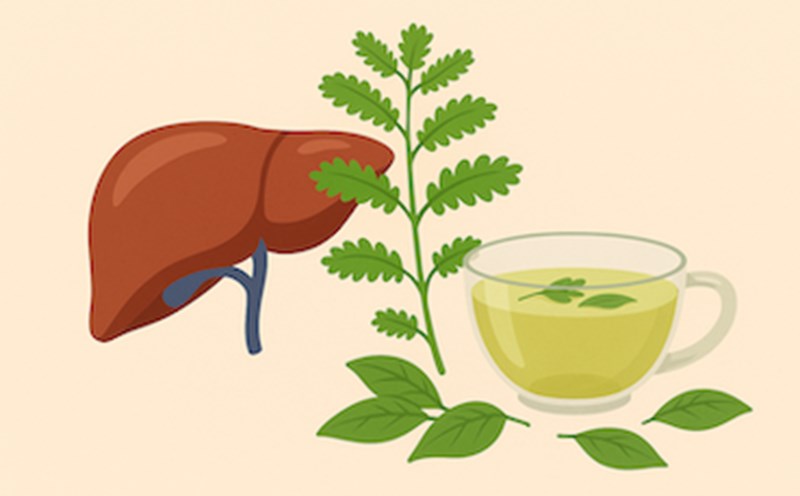mulberries have long been used in traditional Eastern medicine as a liver-healthy and body-purifying medicine. Today, modern studies have also initially confirmed the potential of this fruit in supporting liver detoxification thanks to its high content of antioxidants and flavonoids.
According to a study published in the Journal of Functional Foods, mulberry extract contains anthocyanin - a group of compounds with strong antioxidant properties - which helps reduce liver damage caused by oxidative stress and inhibits the formation of free radicals in liver cells. This is especially important because the liver is the central organ in the process of metabolism and detoxification, so it often has to deal with toxic substances from food, alcohol, medicine, and the environment.
Studies have also shown that mulberries help reduce liver enzymes ALT and AST in laboratory animals with non-alcoholic fatty liver disease. This proves the effect of protecting the liver and the ability to restore liver function through lipid regulation and anti-inflammatory mechanisms.
The World Health Organization also encourages the use of foods rich in polyphenols such as mulberries to reduce the risk of chronic liver disease thanks to their ability to regulate the immune system and fight inflammation. However, WHO also emphasizes that using natural fruits to support the liver should be accompanied by a healthy diet, reducing alcohol and increasing physical activity.
mulberries are a potential fruit in supporting liver detoxification thanks to their rich antioxidant content such as anthocyanins and flavonoids.
Using mulberries in the form of fresh fruit, juice or mulberry tea can contribute to improving liver health, but should be used in moderation and combined with a healthy lifestyle for optimal results.










